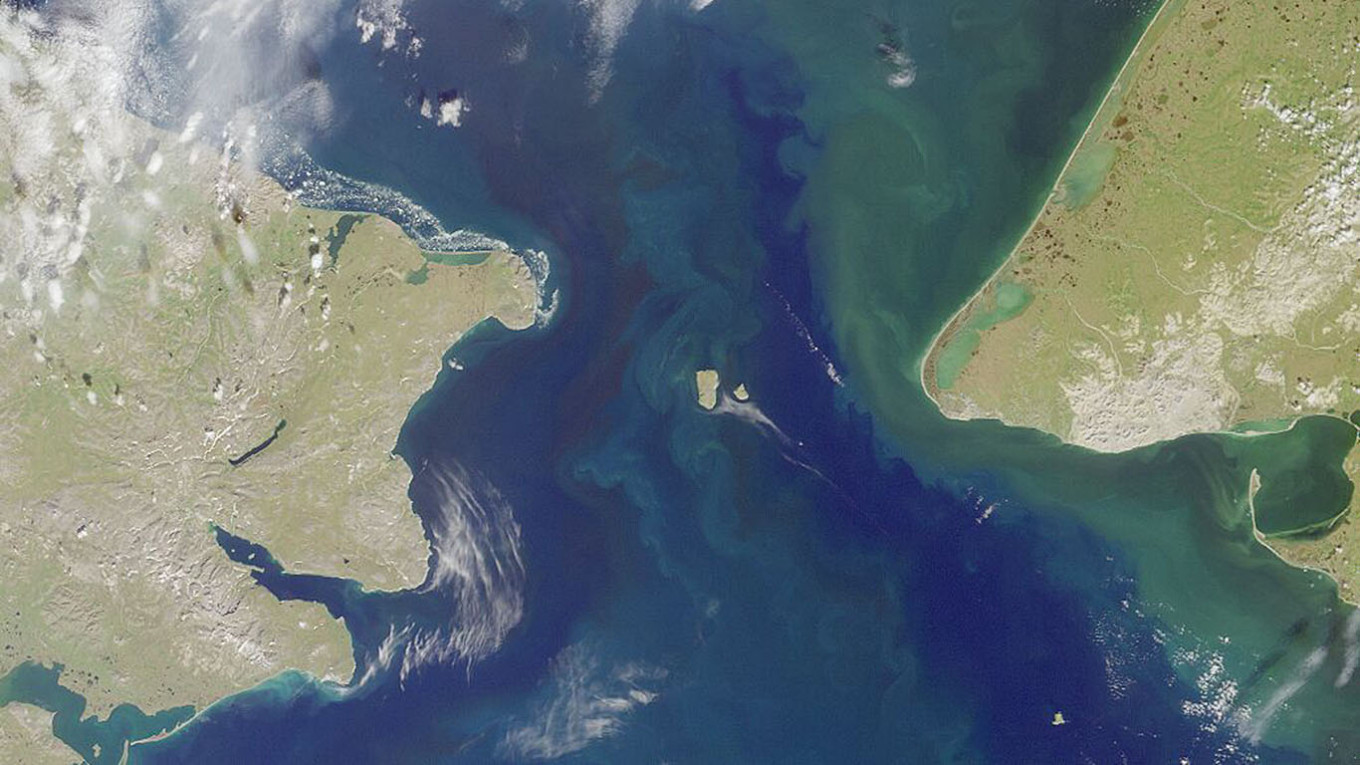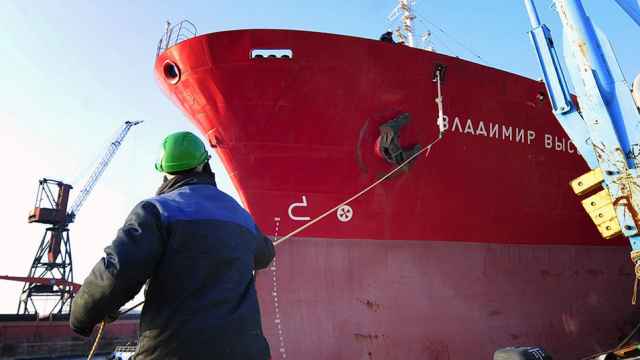No sooner had Presidents Donald Trump and Vladimir Putin hung up their phones than Russian special envoy Kirill Dmitriev announced an ambitious plan: Russia would build a tunnel under the Bering Strait, connecting Russia’s Chukotka with Alaska. It would be called the “Trump-Putin Tunnel.”
A day later, it emerged that Dmitriev’s business entities had already been working on a feasibility study for six months and that the idea supposedly originated with a Soviet official during Khrushchev’s talks with Kennedy.
According to Dmitriev, modern technologies developed by Elon Musk’s Boring Company (owned by Elon Musk) supposedly make it possible to carry out this project for under $8 billion — a third of the cost of the Kerch Strait bridge to Crimea. He wrote that with cutting-edge engineering, construction could be completed in under eight years.
A tunnel under the Bering Strait could “open new prospects for international trade and strengthen economic ties between Russia and North America,” Dmitriev declared. As Russia’s Channel One put it, “It takes your breath away!”
At a joint press conference with Zelensky, a conveniently planted journalist asked Trump what he thought of the idea. Trump replied, “Interesting,” and — oddly — asked Zelensky for his opinion. Zelensky shrugged. That was enough for Russian newspapers to splash front-page headlines reading “Trump Supports Russian Idea of Tunnel Under the Bering Strait” and, in smaller print, “Zelensky Rejects Bering Strait Tunnel Proposal.”
What could possibly connect Zelensky and the Bering Strait? Well, this: Zelensky wants to continue the war, while Trump and Putin are already discussing huge joint infrastructure projects. Dmitriev even paid the United States a visit after Washington slapped sanctions on Russian oil companies.
Some foreign observers, however, noted the ironic look on Trump’s face while he listened to talk of this “grand project.” You can feed him any nonsense about geopolitics. But when it comes to construction, he actually knows a thing or two. He probably realized that the tunnel made zero practical sense.
What good would it do? What would it connect? For what purpose? The nearest populated areas on each side are more than 5,000 kilometers apart. On the Russian side, there are no roads whatsoeverf or thousands of kilometers from the Bering Strait.
It’s far easier — and far cheaper — to ship goods by sea than to build a tunnel, but an entirely new infrastructure spanning half the globe. Besides, there’s little cargo to move given the tiny trade volume between the two countries for reasons that have nothing to do wth the lack of a tunnel.
And as for the claim that the project would somehow make China more connected to the rest of the world (yes, Dmitriev said that too), a glance at a map should be enough to demonstrate that there are far simpler and more reliable routes.
Dmitriev — despite his Stanford degree and rumored Harvard Business School background — could have at least learned that this utopian idea of connecting Alaska and the Chukotka autonomous district under the Bering Strait is anything but new.
As far back as 1924, the Meyerhold Theatre staged the play “D.E.,” based on Ilya Ehrenburg’s novel “Trust D.E.” and Bernhard Kellermann’s "The Tunnel" about Soviet workers digging a tunnel from Leningrad to New York and, having reached it, starting a proletarian revolution in the United States.
The idea continued to captivate Soviet minds for years afterward. Its best-known incarnation was in science-fiction writer Alexander Kazantsev’s novel “The Arctic Bridge.” Written in 1941 but published after the war, it was re-issued during perestroika under a new title, “The Bridge of Friendship."
Despite the title, the story was about building a vast undersea tunnel from Murmansk across the North Pole to Alaska. The tunnel was meant to create a high-speed link between the U.S.S.R. and the U.S. and promote better international relations — though, of course, the enemies of peace tried to sabotage it. And so on and so forth — up to the pop group Lyube’s lyrics: “Siberia or Alaska — it’s all the same shore: sauna, vodka, accordion and salmon.”
Dmitriev’s project provoked what the press likes to call “mixed reactions.” Cynics have already joked that the displaced Palestinians from Gaza should be sent to build the “Trump-Putin Tunnel,” since they have the world’s best experience in underground construction. Political commentators and cartoonists everywhere went wild: the idea of a burrow under the Bering Strait meant to end the war in Europe struck them as absurd and idiotic.
But Dmitriev couldn’t stop. He announced a creative competition devoted to the tunnel’s construction, inviting participants to produce short videos about connecting the two countries by a transport corridor. A jury has already been formed, and the winners will receive a four-day trip to Russia’s Far East (for Americans) or to Alaska (for Russians). The grand prize? Taking part in the first trip through the tunnel.
Through what tunnel, hello? It doesn’t exist!
But the propaganda machine is running full speed, touting the tunnel as being twice as long as the Eurostar tunnel between France and the United Kingdom
I’m reminded of a quote from Gogol’s novel “Dead Souls” about the landowner Manilov: “Sometimes, standing on the porch, he would speak of how wonderful it would be to build an underground passage from the house, or a stone bridge across the pond, with benches along both sides where merchants would sit and sell small goods for the peasants. His eyes would grow extraordinarily sweet, and his face would take on the most contented expression — though all these projects always ended with mere words.”
This could well have been written about Kirill Dmitriev, or perhaps Donald Trump.
In any case, certainly not about Putin. He only has dead souls on his mind in the most literal, warmongering sense — and the more dead, the better. No tunnel or promises of economic cooperation will ever distract him from his main task: turning living people into dead ones.
A Message from The Moscow Times:
Dear readers,
We are facing unprecedented challenges. Russia's Prosecutor General's Office has designated The Moscow Times as an "undesirable" organization, criminalizing our work and putting our staff at risk of prosecution. This follows our earlier unjust labeling as a "foreign agent."
These actions are direct attempts to silence independent journalism in Russia. The authorities claim our work "discredits the decisions of the Russian leadership." We see things differently: we strive to provide accurate, unbiased reporting on Russia.
We, the journalists of The Moscow Times, refuse to be silenced. But to continue our work, we need your help.
Your support, no matter how small, makes a world of difference. If you can, please support us monthly starting from just $2. It's quick to set up, and every contribution makes a significant impact.
By supporting The Moscow Times, you're defending open, independent journalism in the face of repression. Thank you for standing with us.
Remind me later.






